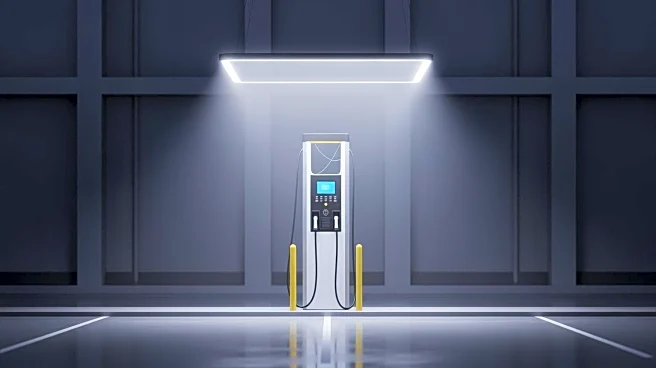What's Happening?
The federal electric vehicle (EV) tax credit, which offered up to $7,500 for new EVs and $4,000 for used ones, ended on September 30, 2025. This change is part of the One Big Beautiful Bill Act, signed by President Trump, which eliminated various clean
energy incentives. The expiration of the tax credit has already affected residents in the Bay Area, a region known for its high EV adoption rates. The end of the California Clean Air Vehicle (CAV) Decal program on October 1, 2025, further reduced incentives for EV ownership by removing the ability for EVs to use High-Occupancy Vehicle lanes without meeting occupancy requirements. Despite these setbacks, the months leading up to the credit's expiration saw a surge in EV sales, with a 40.7% increase from the spring, according to Cox Automotive.
Why It's Important?
The rollback of the federal EV tax credit is significant as it may slow the growth of the EV market, particularly affecting companies unable to make EVs profitable. However, established manufacturers like Tesla and Rivian are expected to weather the change. The Bay Area's commitment to EVs, supported by extensive charging infrastructure, highlights the region's leadership in the national shift towards electric vehicles. The end of the tax credit could alter cost-benefit analyses for potential buyers, especially as the price gap between electric and gas vehicles narrows. The decision reflects broader policy shifts under the Trump administration, which have included reducing environmental protections and supporting fossil fuel industries.
What's Next?
The future of the EV market may depend on company-specific incentives and the introduction of more affordable EV models. Companies like General Motors and Ford are offering discounts to educators, and new models from Tesla, Nissan, and others are expected to expand accessible options. The Bay Area's continued enthusiasm for EVs, driven by environmental concerns and practical benefits like reduced fuel and maintenance costs, suggests that interest in EVs will persist despite the loss of federal incentives.
Beyond the Headlines
The rollback of the EV tax credit raises questions about the U.S.'s commitment to reducing carbon emissions and combating climate change. The decision may have long-term implications for the country's environmental policies and its ability to meet climate goals. The shift in incentives could also influence consumer behavior, potentially slowing the transition to cleaner transportation options.

















